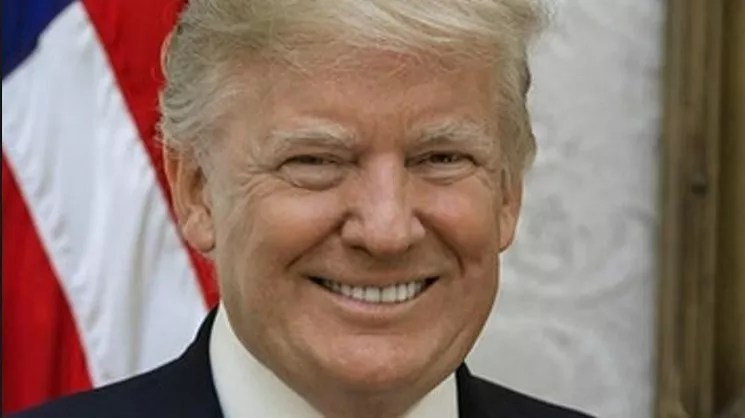
Thinkstock file photo

Audio By Carbonatix
With just days to go before Election Day, November 6, airwaves and social-media feeds are overflowing with political content of varying degrees of quality and accuracy. No wonder so many of us get frustrated trying to tell the good and the true from the bad and the bogus.
Fortunately, Elizabeth Skewes is here to help. As the journalism chairwoman at the University of Colorado Boulder and author of Message Control: How News Is Made on the Presidential Campaign Trail, she studies the media on a daily basis. It’s a dirty job, but someone has to do it.
Skewes recently shared with us ten tips designed to help folks tell the difference between real fake news and fake fake news, as well as to become better, smarter consumers of news and information in general.
It’s advice that definitely doesn’t expire after the votes are counted. But a certain President of the United States does get name-checked a time or two.
Number 1: Burst Your Own Media Bubble
“One of the first things I tell people is that it’s really important to read from a broad variety of news outlets. I think we get too stuck in our own filter. If you are coming at things from a perspective more on the left, take a look at Fox News occasionally, because that perspective is important. On the other hand, if you’re a die-hard Fox News or Breitbart fan, look at MSNBC and CNN every so often.
“Remember, if you see something online and it’s only from one news source, it’s possible it’s an exclusive – but it’s also possible it’s wrong. Look for consensus on what we know and look for where news organizations may be speculating. And try to be aware of what we think is not as solid and what we have evidence for. That’s one area the public can take some responsibility.”
Number 2: Know Which Way You Tilt
“We need to be aware of what we bring from our own biases. Years ago, there was a study called ‘Biased Press or Biased Public?,’ where the researchers had Republicans and Democrats read the same news story and then asked them questions about it. The Republicans said the story was biased against them and in favor of Democrats, and Democrats said it was biased against them and in favor of Republicans. So we need to understand that we view things through our own lens – and we have to be sure that when we read something, we don’t dismiss it if it doesn’t fit our worldview.”

Elizabeth Skewes is the journalism chair at the University of Colorado Boulder.
Number 3: Getting Vetting
“I think it’s important to be wary of social media versus what I would call more vetted media, where a story will typically go through several layers of editing before it’s published. But on social media, anyone can publish anything, including rumors. Facebook and Twitter are great places to look for something that may be of interest. But when you find something interesting, check it out, because sometimes people are only publishing something they’ve heard. Social media is more interested in speed than accuracy. If you give things some time, the truth can come out.”
Number 4: Explainers Can Prevent Complainers
“When news organizations report something that may be controversial, more of them are also starting to publish things that explain the decision to publish and details about the reporting process. For example, Time recently ran a short column by a photographer who got a photo of Senator Jeff Flake at a committee hearing [dealing with the U.S. Supreme Court nomination of Brett Kavanaugh]. Flake has a concerned look on his face and [Senator] Lindsey Graham is talking to him – and the photographer explains how he got the photo. It’s great when news organizations do that. Getting a sense of the process can definitely be informative.”
Number 5: Open Your Mind
“As part of lifting our own lens, we have to be willing to consider information that may challenge what we think. There was a Gallup/Knight Foundation study of polarization in the media and how people felt about it, and it showed there’s a big discrepancy between faith in the media based on political identity. For Republicans, having a favorable impression of the media is down to about 15 percent. For Democrats, it was 54 percent, and for independents, it was somewhere in the middle [25 percent].
“But one of the things that struck me most is that it said 40 percent of Republicans feel that if news casts a group they support in a bad light, they’re going to say it’s fake news. That’s another example of why we need to get beyond our own biases and realize there are such things as facts.”

President Donald Trump has an opinion or two about the media.
File photo
Number 6: Real v. Unreal
“If information is factual, we can disagree with what it means or how to interpret it. But just because somebody, as part of their political rhetoric, tries to challenge something that’s factual doesn’t mean we should drink that particular cup of Kool-Aid.
“Some people think that in order to support President Trump, you have to believe everything he says. So if he says the media is lying, they’ll think, ‘I believe him,’ and then not trust the media. But if we treat the media like one thing – like one big blob of information – that’s not good citizenship. Because media isn’t just one thing.”
Number 7: What You Think v. What You Know
“Take the time to tell the difference between what is reporting and what is opinion. Media organizations used to do a better job of labeling what was news, what was analysis and what was commentary. As it all gets mushed together, sometimes citizens have a difficult time differentiating those categories. They wonder, ‘Am I listening to opinion or news or facts or information-driven stories here?’ They’re not all the same.
“When President Trump says something is fake news, it’s, generally speaking, because he doesn’t like it – and that doesn’t mean it’s inaccurate. If accuracy is the standard, and it should be, we can say it doesn’t matter, but we can’t say it doesn’t exist. Or at least we shouldn’t.”
Number 8: Media Ideology and You
“There has been a lot of information about where members of the media fall in terms of their ideological bent, and some of them are better than others. But the Pew Research Center did a study where they did an ideological placement of news organizations based on the political leanings of the audience for that news organization. The audiences of Fox News and Drudge were consistently more conservative, and the audience for the New Yorker and Slate and The Daily Show were on the left.
“I think that might be a better measure of whether a news organization is left, right or center than when you measure one person’s opinion within a news organization.”

A graphic highlighting the app Read Across the Aisle.
Number 9: Balance in a Button
“If you’re wanting to find information from a source you might not usually use, well, I hate to say it, but there’s an app for that. It’s called Read Across the Aisle, and it will give you fifteen or twenty news organizations that are color-coded, from a darker red for the most conservative sources to a darker blue for the most progressive sources, and varying shades in between. I can click on it and get a Fox News story, and then I can click on The Hill and get a different version of the same story, and it’s all on the same app.”
Number 10: A Little Extra Effort Is All It Takes
“If you’re making an electoral decision – if you want to decide which amendment or proposition you want – invest some time in it. It doesn’t have to be hours. Twenty minutes can make you much more knowledgeable about the investment you’re making as a citizen.
“If the 2016 election taught me anything, it’s that this is a big country, and there are a vast number of people who have a lot of different opinions about things – and if I don’t reach out and try to understand where they’re coming from and why they think what they think, I’m doing a disservice to them and the decisions I’m making as a citizen.”